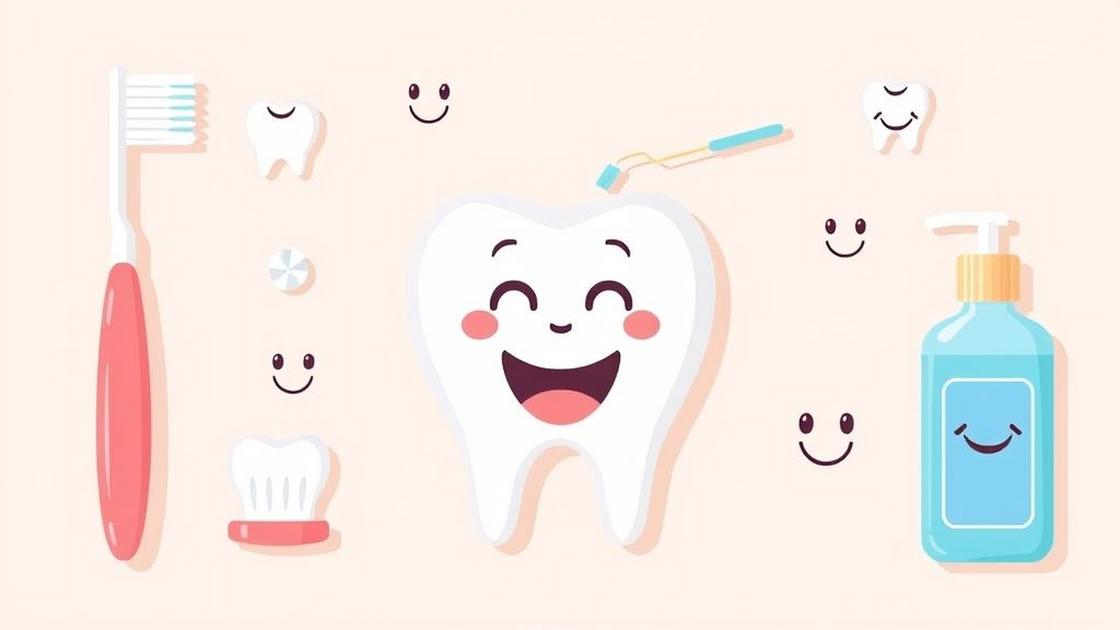Have you been searching for ways on how to heal teeth naturally with vitamins? You’re not alone. Many women over 30 struggle with their dental health and often feel overwhelmed by the options available. It’s frustrating when simple solutions seem so out of reach, isn’t it? But let me assure you, you can take control of your dental health naturally with the right vitamins and care. In this article, we will explore effective, simple methods to rejuvenate your smile, as well as highlight the vitamins that bring your teeth back to life.
Understanding the Role of Vitamins in Dental Health
Dental health is often viewed as simply brushing and flossing our teeth. However, vitamins play a vital role in keeping our teeth and gums healthy. When we consume the right vitamins, we help our bodies sustain the minerals our teeth need. Strong enamel and healthy gums can significantly affect our overall smile.
Vitamin D is one of the key vitamins in strengthening teeth. It helps in calcium absorption, which is essential for maintaining strong tooth structure. Without sufficient vitamin D, your body struggles to absorb calcium, leading to potential dental decay.
Vitamin C is also important. It not only supports gum health but helps prevent gum disease, which can lead to tooth loss. A deficiency in vitamin C can cause gums to become inflamed and bleed easily, making them more susceptible to infection.
Furthermore, keeping an adequate level of vitamin A allows our salivary glands to function properly. Saliva is crucial for neutralizing acids and washing away food particles.
Top Vitamins for Stronger Teeth
To ensure optimal dental health, focus on these key vitamins:
- Vitamin D: Ensures calcium absorption.
- Vitamin C: Fights gum disease.
- Vitamin A: Boosts saliva production.
- Vitamin K2: Helps in regulating calcium levels in the body.
- B Vitamins: Support overall health and well-being.
How Deficiencies Affect Your Smile
Vitamin deficiencies can silently impact our smiles, often without us realizing it. A lack of vitamin D can lead to weakened enamel, making teeth more vulnerable to cavities. Have you noticed increased sensitivity or gums that bleed more than usual? These can be signs of deficiencies.
A deficiency in vitamin C can lead to scurvy, which drastically affects gum health. It’s essential to address these deficiencies, not only for our dental health but for our overall vitality.
Natural Remedies for Tooth Sensitivity
If you’ve been struggling with tooth sensitivity, there are natural remedies that can provide relief. Consider using a vitamin E oil to massage your gums gently. This aids in soothing inflammation.
Moreover, incorporating calcium-rich foods like leafy greens and dairy products into your diet can help strengthen teeth. Herbal rinses using ingredients like sage or chamomile can also promote healing and reduce sensitivity.
Integrating Vitamins into Your Daily Routine
Making vitamins a part of your daily life can be simple. Start each day with a nutrient-rich breakfast. Options like oatmeal topped with fresh fruits can provide an excellent source of vitamins. You might also consider a daily multivitamin designed to support dental health.
Try to pay attention to your body; the signals it gives you can indicate what you might be missing. Keeping a small journal of what you eat and noting how your teeth feel can empower you to make better choices.
Foods That Promote Healthy Teeth
Aside from vitamins, certain foods can naturally promote healthy teeth. Here are some delicious choices:
- Dairy Products: Yogurt and cheese are rich in calcium.
- Leafy Greens: Spinach and kale provide essential vitamins.
- Nuts and Seeds: Almonds and chia seeds are great options.
- Fruits: Apples and strawberries are both tasty and beneficial.
- Fish: Fatty fish provides not just protein but also vitamin D.
Common Myths About Teeth and Nutrition
Many of us have been influenced by myths that surround dental health and nutrition. For instance, some believe that only sugary foods cause cavities. While sugar plays a role, it’s essential to consider overall dietary balance.
Another myth is that all dairy should be avoided if you’re lactose intolerant. In fact, there are many lactose-free options available that maintain the nutritional profile and benefits for our teeth.
The Connection Between Oral Health and Overall Wellness
It’s important to remember that our oral health reflects our overall wellness. Poor dental hygiene can lead to infections that may affect other parts of our body, potentially leading to conditions like heart disease or diabetes.
By nurturing our teeth with the right vitamins and nutrition, we also support our entire body. Keeping your mouth healthy can improve not only how your smile looks, but how you feel overall.
Embracing a Holistic Approach to Dental Care
Practicing holistic dental care means considering your body as a whole. It’s not just about treating symptoms but understanding underlying causes. This means focusing on a balanced diet, stress management, and holistic remedies.
Visualize your dental care as a journey where you treat your teeth with kindness. Allow yourself to explore natural options, and don’t hesitate to consult professionals who understand and advocate for holistic approaches.
Real Stories: Women Who Improved Their Dental Health Naturally
Many women have shared empowering stories of transforming their dental health naturally. For instance, several women have adopted a vitamin-rich diet and noticed significant improvements in both their teeth and overall health.
One story highlights a woman who struggled with sensitive teeth for years. By integrating more vitamin D and calcium into her meals, she found relief and even more confidence in her smile. Her journey shows that with the right dedication and knowledge, it’s possible to overcome challenges.
Celebrating these transformations not only provides hope but also inspires others. You, too, can take steps towards achieving a healthier smile by focusing on vitamins and nutrition!






